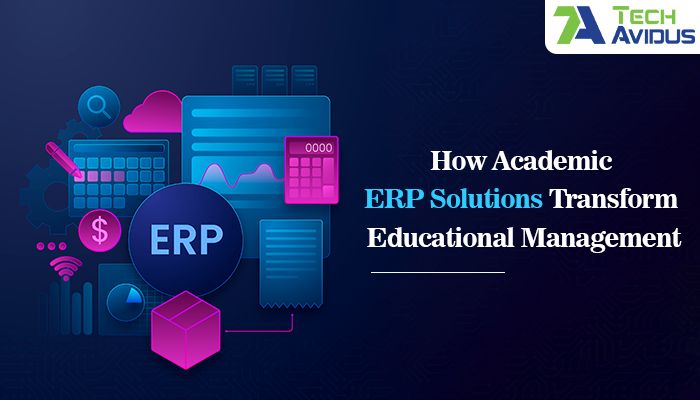
In the modern era of education, institutions are constantly seeking ways to improve their administrative efficiency and provide a better experience for students and staff alike. One significant development that has revolutionized the education sector is the implementation of Academic ERP (Enterprise Resource Planning) solutions. These systems streamline various institutional processes, integrating multiple functions into a unified platform. In this article, we will explore how Academic ERP solutions transform educational management and contribute to the overall enhancement of academic institutions.
What Are Academic ERP Solutions?
Academic ERP solutions are comprehensive software systems designed to manage and automate a wide range of administrative and academic processes within educational institutions. These systems integrate functions such as admissions, attendance, examinations, fee management, library services, and human resources into a single cohesive platform. By centralizing these activities, Academic ERP solutions facilitate seamless information flow and efficient management across all departments.
Key Features of Academic ERP Solutions
- Admission Management: Simplifies the admission process by automating applications, registrations, and enrolments.
- Attendance Tracking: Provides real-time attendance tracking for students and staff, ensuring accuracy and timely updates.
- Examination and Grading: Manages exam schedules, question paper generation, and automated grading, reducing manual effort and errors.
- Fee Management: Automates fee collection, invoicing, and financial reporting, ensuring transparency and accountability.
- Library Management: Integrates library resources, enabling efficient cataloging, issuance, and return of books.
- Human Resource Management: Streamlines HR functions such as payroll, recruitment, and performance appraisal.
- Communication Tools: Enhances communication between students, teachers, and parents through integrated messaging and notifications.
- Reporting and Analytics: Provides comprehensive reports and analytics on various academic and administrative activities, aiding data-driven decision-making.
Benefits of Implementing Academic ERP Solutions
- Operational Efficiency: By automating routine administrative tasks, Academic ERP solutions reduce the time and effort required for manual processing, allowing staff to focus on more strategic activities.
- Data Accuracy: Centralized data management ensures that information is consistently accurate and up-to-date, minimizing errors and discrepancies.
- Enhanced Collaboration: The integrated communication tools foster better collaboration between teachers, students, and parents, creating a supportive educational environment.
- Resource Optimization: Academic ERP solutions enable efficient allocation and utilization of resources, from classroom scheduling to faculty assignments.
- Improved Decision-Making: With comprehensive reporting and analytics, institutions can make informed decisions based on real-time data and insights.
- Scalability: These solutions are scalable, allowing institutions to expand their functionalities as their needs grow, without significant additional investments.
Conclusion
Academic ERP solutions are transforming the way educational institutions manage their operations, offering a comprehensive and integrated approach to administration and academics. By incorporating an
Academic Management System within these solutions, institutions can achieve greater efficiency, accuracy, and collaboration. As the education sector continues to evolve, the adoption of Academic ERP solutions will be essential for institutions aiming to stay competitive and provide the best possible experience for their students and staff.
Need an Expert Web & Mobile Application
Developer for your project?
